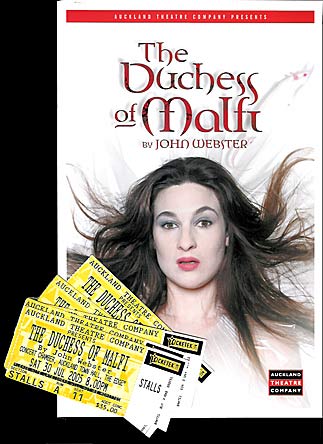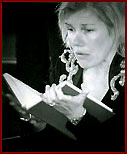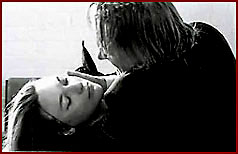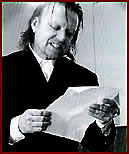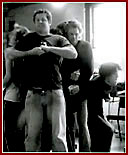|
|
Home > Recent Projects > Duchess of Malfi |
|
|||||||||||||||||||||||||||||||||||||||||||||||||||||||||||||||||||||||||||
| |
|||||||||||||||||||||||||||||||||||||||||||||||||||||||||||||||||||||||||||||
| Presented by
Auckland Theatre Company at the |
|||||||||||||||||||||||||||||||||||||||||||||||||||||||||||||||||||||||||||||
|
|
|||||||||||||||||||||||||||||||||||||||||||||||||||||||||||||||||||||||||||||
|
|
|
||||||||||||||||||||||||||||||||||||||||||||||||||||||||||||||||||||||||||||
| |
|||||||||||||||||||||||||||||||||||||||||||||||||||||||||||||||||||||||||||||
|
|
Artistic
Director This year is the 400th anniversary of the Gunpowder Plot of 1605, when disgruntled British Catholics attempted to blow up King James I and his entire parliament. It epitomized the unpredictability of the times. Despite difficulties towards the end of her reign, Elizabeth had taken on (and actively promoted) a God-like status amongst her subjects. James was not nearly as attractive a figure--his luxuries, his sycophantic court crowded with favourites, his hedonism and arrogance made Elizabeth's reign seem like the glory days. Religious discontent was rife, with the Puritan movement gaining momentum, and as scientific discovery went ahead in leaps and bounds so the absolute power of the Church was challenged. The drama of Elizabeth's reign had been predominantly bold and assured; villains overcome by the forces of good, confirming the existence of moral order. Jacobean drama was darker and more complex and reflected the spirit of the times. The plays explored corrupt worlds where human nature was suspect and self-consciousness and uncertainty reigned. Although Webster based his play on a true story set in Italy, the ideas of injustice, inequality and corruption he explored were undoubtedly comments on Jacobean England. Approaching a Jacobean drama's darkness of spirit today can seem as daunting for actors as it may be for audiences. Yet the moral complexity of these plays make them surprisingly contemporary, edgy and intriguing psychological studies of flawed characters. In an attempt to get to the heart of The Duchess of Malfi we have stripped back the setting to a bare black world where the story can unfold and the clash of personalities can be seen in stark relief. The characters (like us all) are caught between heaven and hell. This unembellished setting (deliberately free of directorial concepts and painterly sets) suggests the moral wasteland of the human soul and allows clarity for the story to unfold and affords Webster's words--at once astonishingly poetic and surprisingly modern--the prominence they deserve. One of theatre's enduring strengths in this digital age is celebration of the eloquence of language. The Duchess of Malfi has this in abundance. My thanks to the company of actors for their talent, commitment and insights. Also to the production team and theatre management for allowing myself and my creative team the time and space to "distill" this Duchess. It was been an exhilarating voyage of discovery for us all. -Colin McColl
|
||||||||||||||||||||||||||||||||||||||||||||||||||||||||||||||||||||||||||||
| |
|||||||||||||||||||||||||||||||||||||||||||||||||||||||||||||||||||||||||||||
|
|
Year-End Kudos for The Duchess of Malfi Listener: "The boldest production was Colin McColl’s Duchess of Malfi for the ATC. McColl consistently mounts challenging theatre, and there were some inspired moments in this stylish production. Notably, the best design of the year by Tony Rabbit, with his thrust sandpit stage and imaginative use of the Town Hall concert chamber, sumptuous costumes by Elizabeth Whiting, striking original music by John Gibson, not to mention another captivating performance by Hurst (as Bosola)." |
||||||||||||||||||||||||||||||||||||||||||||||||||||||||||||||||||||||||||||
|
|||||||||||||||||||||||||||||||||||||||||||||||||||||||||||||||||||||||||||||
| |
|||||||||||||||||||||||||||||||||||||||||||||||||||||||||||||||||||||||||||||
|
|
|
|
|||||||||||||||||||||||||||||||||||||||||||||||||||||||||||||||||||||||||||
|
|
|||||||||||||||||||||||||||||||||||||||||||||||||||||||||||||||||||||||||||||
